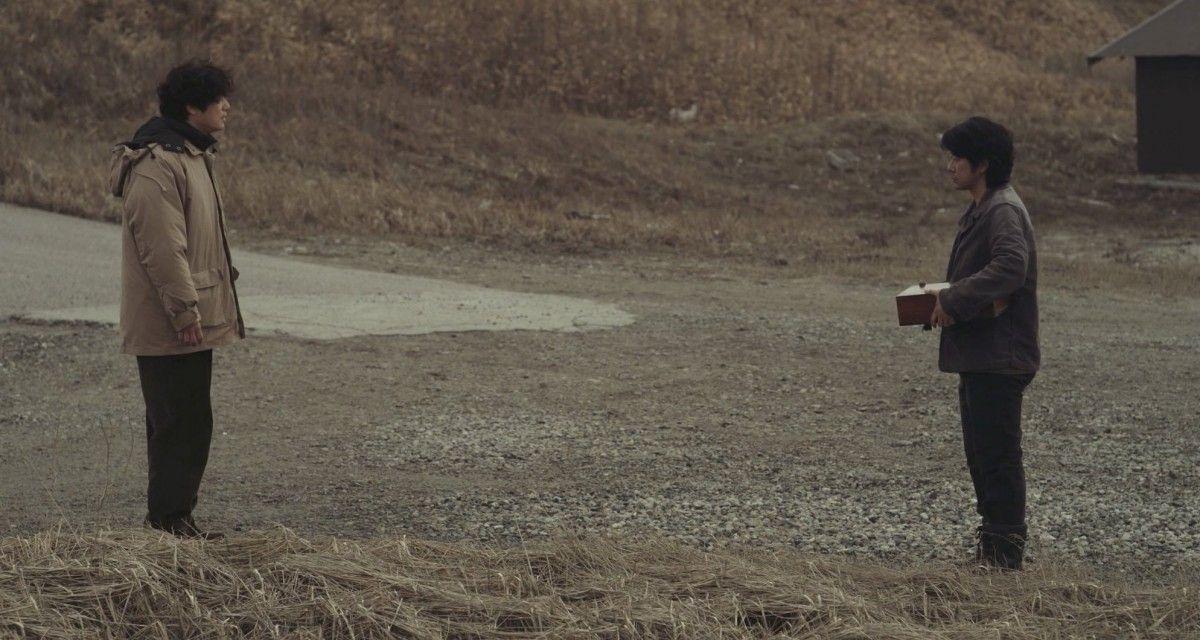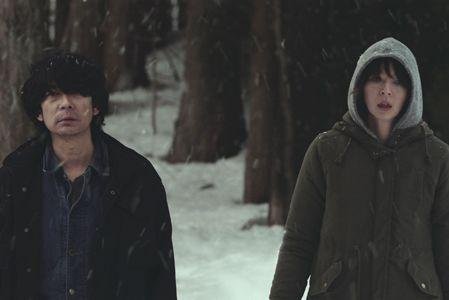
In Red Snow, Masatoshi Nagase stars as a Kazuki, a varnish artist who works on bowls for a living with acrylic paints. He resides on a coastal northern island in Japan, afflicted by a past he can barely remember between his hazy memory and the lurid, snowdriven dreamscape he awakens from in the morning.
This is the continued aftermath afflicting him in the decades since chasing his brother up a path amid a heavy snowfall, only to see him disappear right before his eyes. Thirty years later, he’s buried much of his emotions though lives in what appears to be a constant state of emotionless wonderment.
It’s just another cold day on the island though, it seems, until one day when a journalist named Shogo (Arata Iura) shows up with details that renew the investigation of his brother’s disappearance. When Kazuki declines to comment, Shogo’s inquiry then lands him the location of Sayuri (Nahata), a troubled woman who is believed to have witnessed the pivotal incident when she was just a child herself.
A series of revelations ensue with Shogo’s dilligence later fomenting Kazuki’s own need for completion as his own lucid dreams keep haunting him. Seeking Shogo’s counsel, it’s the start of a series of grim discoveries and revelations, and a desperate plea for the truth – one that only Sayuri can corroborate, but only if her own madness doesn’t settle in.
Newcomer Sayaka Kai’s Red Snow does a fine and fitting job of developing our characters and elucidating their tribulations. Implementing flashbacks, even the illustrious and often vague imagery help coalesce things. The depictions are as grim and painful in their assembly as we learn more and more about the people in this story.
Actor Koichi Sato’s role, Takashi, brings a sinister presence to Red Snow that amplifies the palpability of Nahata’s character, casting a spotlight on such important and tangible issues surrounding the welfare of children in rural life – especially underscoring things like kidnapping, child endangerment and sexual abuse.
The film reaches its most intense pinnacle within the second half in a confrontation between Kazuki and Sayuri. Their chase scene culminates a poetic elevation of Kazuki’s own struggle, coupled with Sayuri’s own misanthropic inner-turmoil and lack of faith, and in the dualities of right and wrong, and questions on what truth really means.
There’s no real justice brought to the forefront of the actual crime itself. The story is much more of an introspective journey that deals in the ambiguity of memory in the wake of a traumatizing experience, life’s own unpredictability, and how we cope with these things. At least one moment reflects this with regard to Kazuki who tells Sayuri at one point “…You are not your mother.” It’s one of the most important exchanges in Red Snow which invokes a key redemptive element in our characters by the end.
Red Snow brings a mystifying, indelible aura with its story, beautifully lensed with intense, hypnotic imagery. As convenient as wintery locations for crafting an intriguing mystery crime drama with arthouse poise, Red Snow is certainly a plus for Kai as her directing career progress along with her creative stride.

